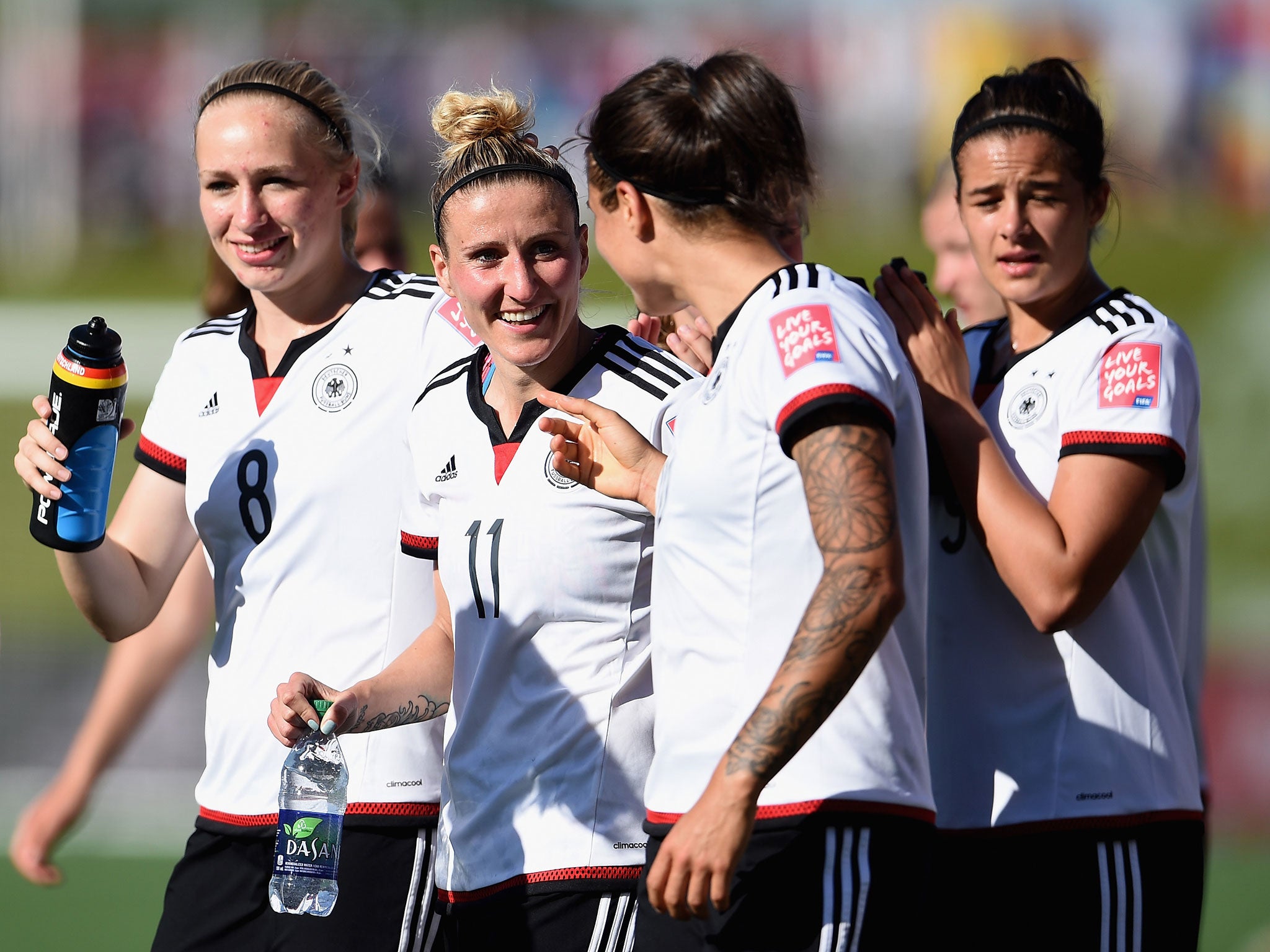Women's World Cup 2015: French rise threatens to upset Germany in quarter-final
The sides meet in Montreal

Your support helps us to tell the story
From reproductive rights to climate change to Big Tech, The Independent is on the ground when the story is developing. Whether it's investigating the financials of Elon Musk's pro-Trump PAC or producing our latest documentary, 'The A Word', which shines a light on the American women fighting for reproductive rights, we know how important it is to parse out the facts from the messaging.
At such a critical moment in US history, we need reporters on the ground. Your donation allows us to keep sending journalists to speak to both sides of the story.
The Independent is trusted by Americans across the entire political spectrum. And unlike many other quality news outlets, we choose not to lock Americans out of our reporting and analysis with paywalls. We believe quality journalism should be available to everyone, paid for by those who can afford it.
Your support makes all the difference.For those still unconvinced about the quality of women’s football on Friday night should see the first outstanding match of a promising but often uneven World Cup. Germany, two-time winners and world-ranked No.1 team, face the tournament’s dark horses, world No.3, France, in Montreal. It is likely to be one of the few matches featuring two high-class teams both committed to attack.
Though France were surprisingly beaten in the group stages by Colombia, and Germany held by Norway, each have generally been in excellent form in Canada winning their last-16 knock-out round matches even more easily than the scorelines (respectively 3-0 against South Korea and 4-1 against Sweden) suggest.
The Germans play an aggressive high-tempo pressing game with good use of overlapping full-backs. They have a very potent attack with Anja Mittag (pictured) and Celia Sasic having already scored five goals apiece. Other players to watch for are midfielder Dzsenifer Marozsan and right-winger Simone Laudehr.
The French tend to have a more deliberate build-up but also have skilled, powerful players and good depth. Striker Eugenie Le Sommer is having a fine tournament and winger Elodie Thomis, when in the mood, is a handful for anyone while Wendie Renard is a commanding centre-half and Amandine Henry currently outshining the highly-rated Louisa Necib in midfield.
Although Germany did not have a national team until 1982 this is a meeting between the established European power and the coming one. Germany have won the last six European championships and their clubs six of the last eight Uefa Champions League finals. France are yet to win any major honour but, led by Lyon (the only non-German team to win the Champions League since Arsenal in 2007) and Paris St Germain, who provide almost all Philippe Bergeroo’s team, they are challenging.
The roots of the French rise lie in the late 1990s when the national team joined the men at the Clairefontaine training centre. Les Bleues failed to qualify for the first three World Cups but reached the fourth in 2003 via a play-off against England that attracted 23,000 fans to St Etienne and TV coverage.
Although the French did not get out of the group stage, and failed to qualify in 2007, a breakthrough had been made. With central contracts and a semi-professional league established a talented generation began to emerge. This forms the core of the current side. So far they have reached the semi-finals of the 2011 World Cup and 2012 Olympics, and the quarter-finals at Euro 2009 and Euro 2013, losing on penalties on both the latter occasions.
Such is France’s progress there is a sense that in recent years they have been underperforming and questions have been asked about their mental strength. This is not something that could ever be levelled at a German team and they have always crushed France when it matters winning 3-0 at Euro 2005, 5-1 at Euro 2009 and 4-2 at World Cup 2011. However, France did win a friendly in Offenbach 2-0 in October so ought not be overawed.
Why are two such heavily-favoured teams meeting at the quarter-final stage? It is not because of freak results. They were seeded to do this. Fifa have admitted that the draw was structured (critics say rigged) to maximize ticket sales and television audiences. Thus France have played in the Francophone areas, Canada and the well-supported United States usually at the bigger venues, and Japan, for TV-friendly kick-off times, in the west. There also looks to have been, as is often the case with Fifa, a geographical aspect with the two European seeds, Germany and France, put in the same half of the draw.
In terms of the fairness of tournament it is not ideal, but has resulted in what should be a high-calibre match relatively early in the knock-out stages. The United States, who play China in Ottawa on Friday night, should await the winners.
Join our commenting forum
Join thought-provoking conversations, follow other Independent readers and see their replies
Comments